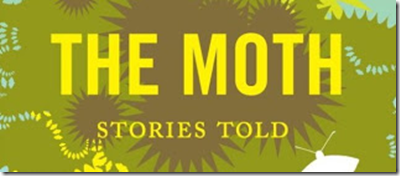A possible (though not advised) replacement for heart medication
/I spent a week at Kripalu Institute for Yoga and Health last week, teaching storytelling to a dozen remarkable people.
On Tuesday night I performed my one-man show, and on Thursday evening, ten of the storytellers from class took the stage and performed.
It was an extraordinary night.
One of my storytellers had not spoken to a group of people in more than 15 years after suffering a terrible embarrassment in high school. Just standing in front of 50 people was an enormous accomplishment for her. I felt so honored to give her the space and support to help her conquer this enormous fear.
Then she proceeded to make the audience roar with laughter with a hilarious and moving story about her childhood. It turns out that she's a storyteller.
Several of the storytellers stood before this audience of strangers and told stories about parts of their lives that they had never shared before. Hard parts. Haunting parts. The parts that require more bravery to tell than most people can muster.
There was laughter and tears. Gasps and guffaws. Hilarity and heartbreak. There were lines that I will never forget. "Golden sentences" one of my storytellers dubbed, and she was right. It was 90 minutes of beauty nestled in the quiet mountains of the Berkshires. It was dark outside, but each storyteller shone bright that night.
After the show, a man approached me. He reached into his pocket, removed a small container, and held it out for me to see. He explained that he suffered from a heart condition, and this was his nitroglycerin. The medication he needed if his heart started "acting up."
"But I feel like I should throw this away," he said. "My heart doesn't need medication. It needs what you did on Tuesday night and these people did tonight. I've listened to all these stories, and my heart hasn't felt this good in twenty years. This is what people need. This is what I need."
I suggested that he keep the nitroglycerin close in the event a storyteller is not available when his heart started "acting up" again, and he agreed.
But he was right.
Stories are good for the heart and good for the soul.




